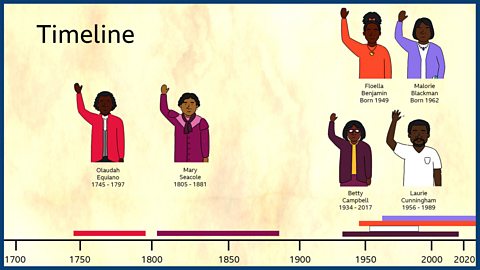Children's television presenter Nigel Clarke celebrates the lives of six extraordinary people and their contribution to British history.
The videos
Olaudah Equiano (1745 - 1797) video
Celebrating the life of the anti-slavery campaigner Olaudah Equiano, once an enslaved person himself.
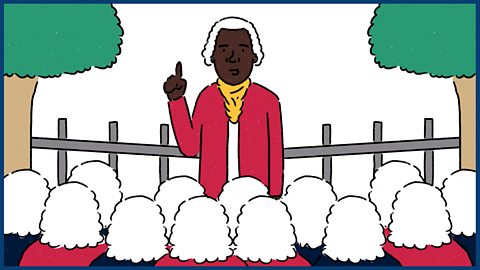
Mary Seacole (1805 - 1881) video
Celebrating the life of Mary Seacole who journeyed to the Crimean War and cared for British soldiers there.
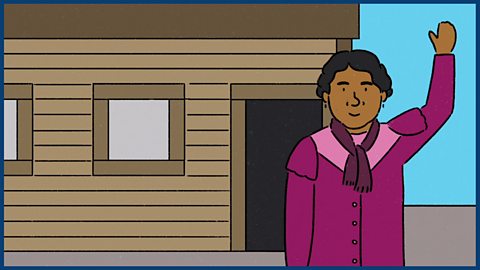
Betty Campbell (1934 - 2017) video
Celebrating the life of Betty Campbell, a pioneering headteacher and campaigner for Black History Month.
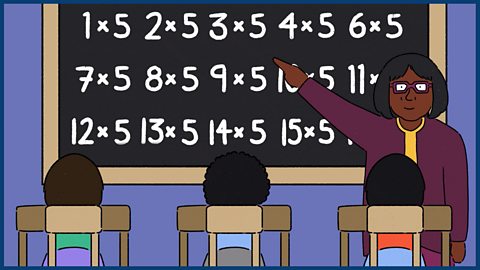
Floella Benjamin (born 1949) video
Exploring the life and work of actress, writer, TV presenter and politician Baroness Floella Benjamin.
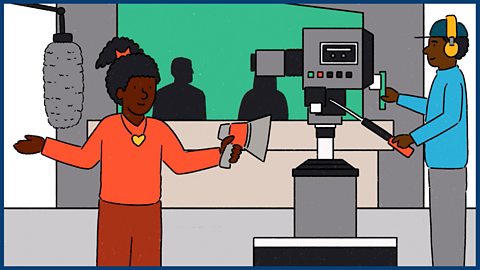
Laurie Cunningham (1956 - 1989) video
Celebrating the life of superstar Laurie Cunningham, one of the very first black footballers to play for England.
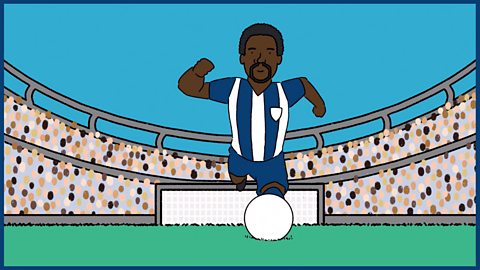
Malorie Blackman (born 1962) video
Exploring the life and work of writer Malorie Blackman, who has published more than 60 books for children.
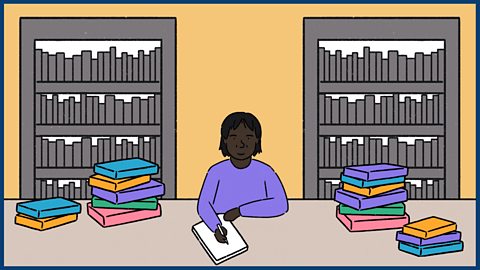
KS1 Black British History
In this collection of short videos Nigel Clarke celebrates the contribution of six extraordinary people to British history. The collection is presented on this page in chronological order, beginning with Olaudah Equiano (1745 - 1797) and ending with Malorie Blackman (born 1962). However, each of the films is 'stand alone' and can be viewed independently of the collection as a whole, albeit there are recurring themes that you may wish to draw out if you are sharing more than one of the films with your class or group.
The six have been chosen to represent a variety of historical periods. Two - Baroness Floella Benjamin and Malorie Blackman - are part of the current generation; Betty Campbell and Laurie Cunningham belong to the period 'within living memory'; while Olaudah Equiano and Mary Seacole are figures from the eighteenth and nineteenth centuries respectively. They have also been chosen to offer a broad range of occupations and achievements.
It should be noted that although each of the six has made a significant contribution to British history not all of them are actually British by birth. Olaudah Equiano was born in modern-day Nigeria and settled in Britain in his twenties after being taken to America as a slave. Mary Seacole was born in Jamaica and first came to Britain in 1823, when she stayed for two years; she returned at the start of the Crimean War and settled in London after the Crimean War ended in 1856.
Each video is accompanied by Teacher Notes offering:
- a short introduction
- some suggestions for what to discuss with the children before watching the video
- some questions to ask children after the video to consolidate their knowledge and understanding of it
- some suggested discussion pointers, that will help to draw out relevant themes
Some of the videos include themes that will need careful preparation. Olaudah Equiano's story inevitably includes references to slavery and Mary Seacole's to war in the Crimea; a number of the other videos also reference some negative experiences, including racism. It is important to watch the videos before sharing to assess their suitability for your class or group.
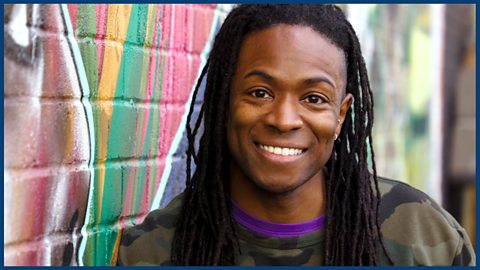
Nigel Clarke - presenter
The films are presented by Nigel Clarke, who may be familiar to the audience from his many television appearances, including in ΒιΆΉΤΌΕΔ Children's programmes. Nigel's own parents emigrated to the UK from Guyana, where he still has extended family. He was born and grew up in London.
Further resources
Download / print the Teacher Notes to accompany the videos
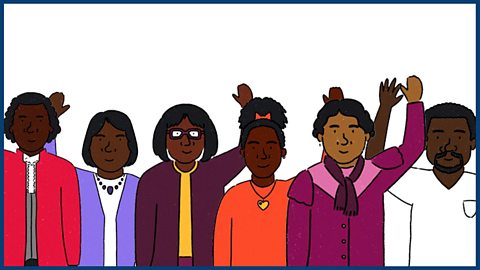
Image from the videos - click to display image full size
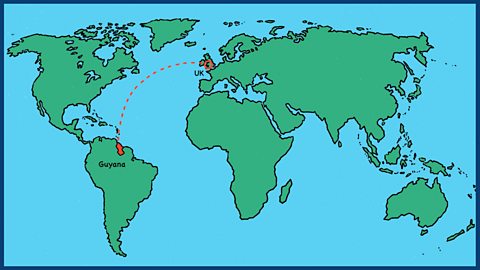
Click to display image full size
